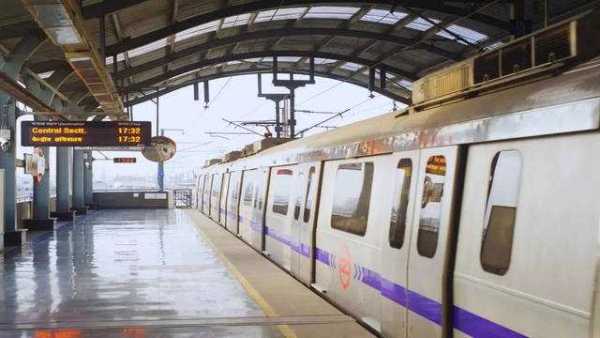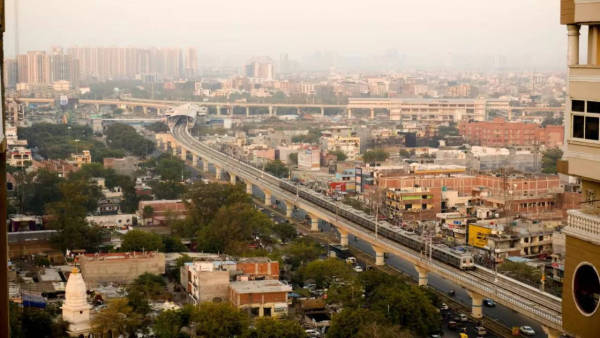
India’s metro network has reached a significant milestone, now ranking as the third-largest in the world with a total length of 1,000 km. This achievement highlights the government's commitment to enhancing urban connectivity and ease of travel.
Under former Prime Minister Atal Bihari Vajpayee’ leadership, Delhi's sophisticated metro system was launched in 2002, marking the beginning of India's metro journey. And under Prime Minister Narendra Modi's direction, the network has expanded considerably, especially after 2014. With an additional 1,000 km, the metro network has tripled in size in the last ten years. Cities that benefit from metro connectivity have increased from five to twenty-three, while the number of states with metro services has climbed from five to eleven.
Read more:
Los Angeles wildfire update: Flames ravage Hollywood Hills, thousands flee
In 2014, there were 28 lakh riders per day; today, there are over one crore, a 2.5-fold increase. Similarly, the overall distance traveled by metro trains has increased, rising from 86,000 km to an astounding 2.75 lakh kilometers every year. These numbers highlight how important the metro system is becoming to urban transportation nationwide.

In order to commemorate the opening of a 13-km section of the Delhi-Ghaziabad-Meerut Namo Bharat Corridor, PM Modi would travel the Namo Bharat Train from Sahibabad RRTS Station to New Ashok Nagar RRTS Station. This corridor, which is expected to be constructed at an estimated cost of INR 4,600 crore, will greatly improve regional connectivity between Delhi and Meerut by offering pleasant and fast travel options.
Additionally, PM Modi will inaugurate a 2.8-km stretch of Delhi Metro Phase-IV between Janakpuri and Krishna Park. This development, built at an investment of INR 1,200 crore, is the first operational segment of Phase-IV and will greatly benefit residents of West Delhi, including Janakpuri, Krishna Park, and parts of Vikaspuri.
Read more:
Exploring 8 of the world's most isolated structures
The Prime Minister will also lay the foundation stone for the 26.5-km Rithala-Kundli section of Delhi Metro Phase-IV. With an estimated cost of INR 6,230 crore, this corridor will link Delhi’s Rithala to Nathupur (Kundli) in Haryana, enhancing connectivity across North-West Delhi and Haryana and benefiting areas like Rohini, Bawana, Narela, and Kundli.
As India’s urban landscape evolves, the metro’s expansion is set to transform the daily lives of millions, offering seamless, modern, and affordable travel. With the government’s continued focus on world-class infrastructure, the future of urban mobility in India appears brighter than ever.
 India’s metro network has reached a significant milestone, now ranking as the third-largest in the world with a total length of 1,000 km. This achievement highlights the government's commitment to enhancing urban connectivity and ease of travel.
India’s metro network has reached a significant milestone, now ranking as the third-largest in the world with a total length of 1,000 km. This achievement highlights the government's commitment to enhancing urban connectivity and ease of travel.
 In order to commemorate the opening of a 13-km section of the Delhi-Ghaziabad-Meerut Namo Bharat Corridor, PM Modi would travel the Namo Bharat Train from Sahibabad RRTS Station to New Ashok Nagar RRTS Station. This corridor, which is expected to be constructed at an estimated cost of INR 4,600 crore, will greatly improve regional connectivity between Delhi and Meerut by offering pleasant and fast travel options.
In order to commemorate the opening of a 13-km section of the Delhi-Ghaziabad-Meerut Namo Bharat Corridor, PM Modi would travel the Namo Bharat Train from Sahibabad RRTS Station to New Ashok Nagar RRTS Station. This corridor, which is expected to be constructed at an estimated cost of INR 4,600 crore, will greatly improve regional connectivity between Delhi and Meerut by offering pleasant and fast travel options.